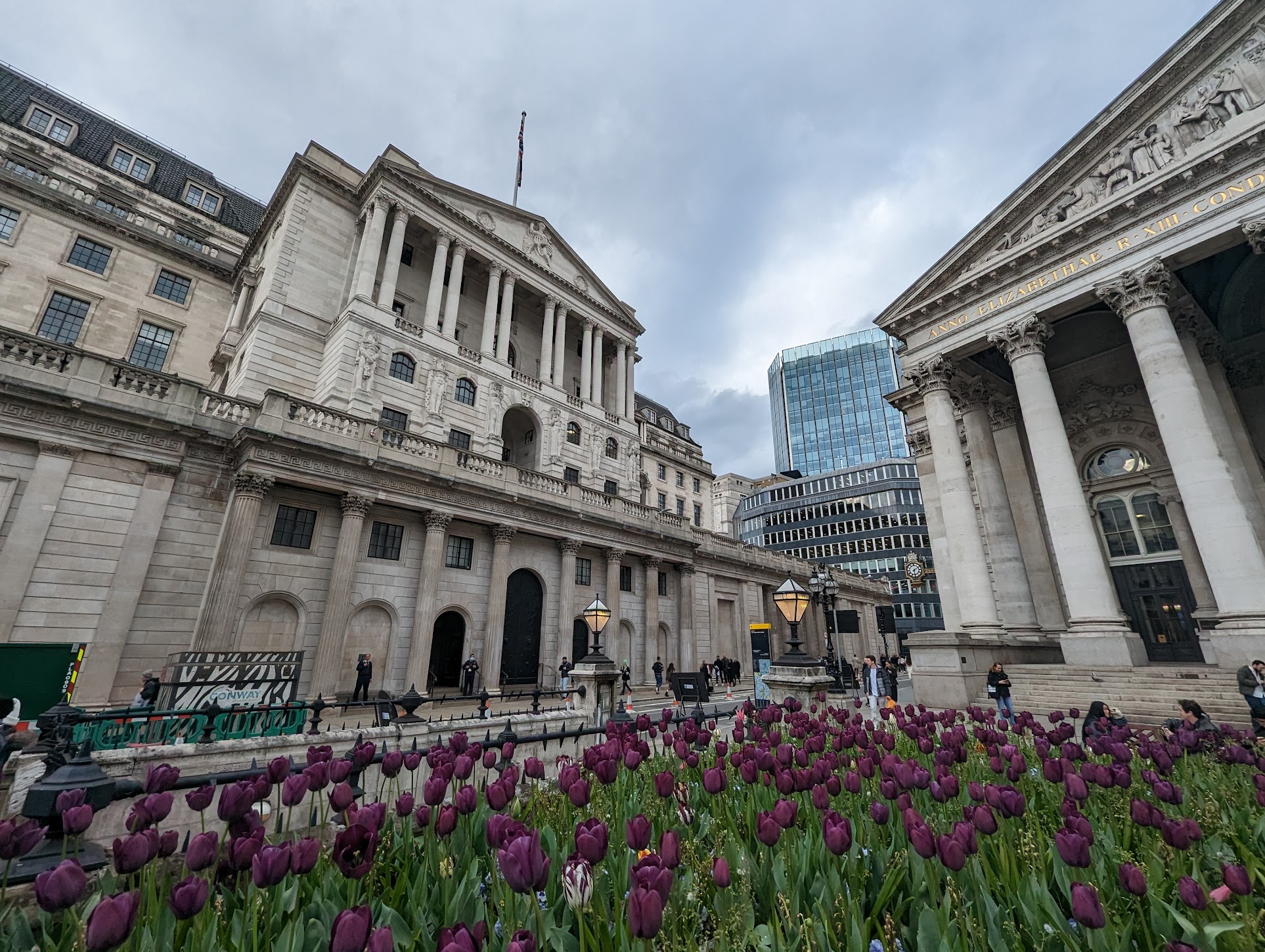March inflation drop fuels May rate cut hopes

Bank of England (credit: George Iordanov-Nalbantov)
UK inflation fell to 2.6% in March, dropping from 2.8% in February and below City forecasts of 2.7%, intensifying pressure on the Bank of England to consider cutting interest rates at its meeting next month.
The Office for National Statistics attributed the lower rate primarily to falling fuel prices and slower cost increases for recreational activities, though rising clothing and footwear prices provided some offset. Petrol prices decreased by 1.6p per litre between February and March. Flat food prices in March, compared to rising prices in the same month last year, also contributed to the slowdown.
Despite inflation remaining above the Bank’s 2% target, financial markets are now pricing in a high probability (86%) of a quarter-point interest rate cut to 4.25% on 8 May.
However, the economic outlook remains uncertain, clouded by recent US trade tariff announcements under Donald Trump. While initial plans caused market turmoil before being reversed, the potential for trade disruption could dampen global growth and affect future inflation, possibly leading to a lower peak than the 4% previously forecast by some analysts for the summer.
Kevin Brown, savings specialist at Scottish Friendly, commented: “Some increase in inflationary pressures had been expected, with higher energy costs weighing on March’s figures. However, today’s data was below expectations, even if it remains above the 2% target. It may make the Monetary Policy Committee’s decision on interest rates a little easier when it meets in May.
“It is however likely to be a temporary reprieve for households, unwanted April data brings a series of significant bill increases coming into effect – water, energy, broadband and council tax, among others. April also sees the introduction of National Insurance hikes for businesses, which may have an inflationary sting in the tail. While wage growth remains robust, a chunk of those wage rises look set to be lost in higher household expenses.
“This is an uncertain moment – both for the UK economy and for household finances. The best way to feel less powerless in the face of rising bills is to build resilience into your finances. There is no substitute for regular saving to provide insulation against whatever the future may hold.”










